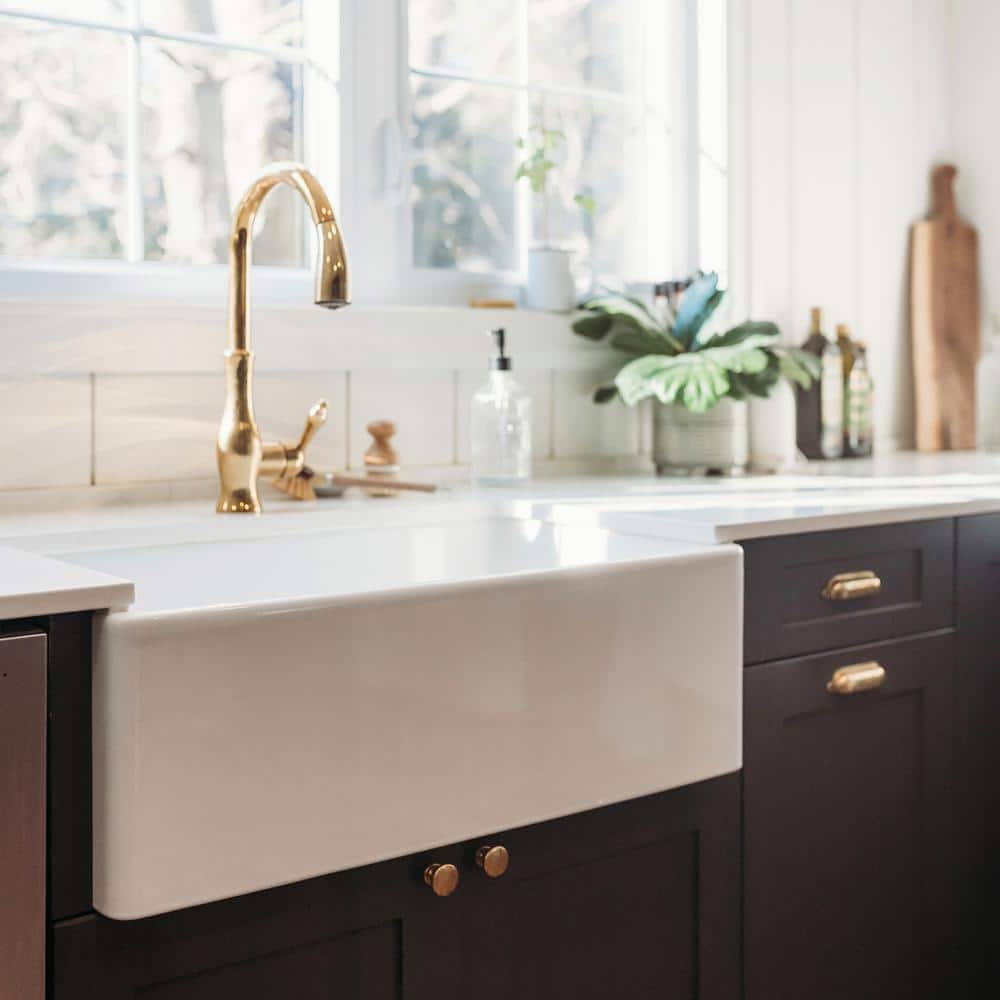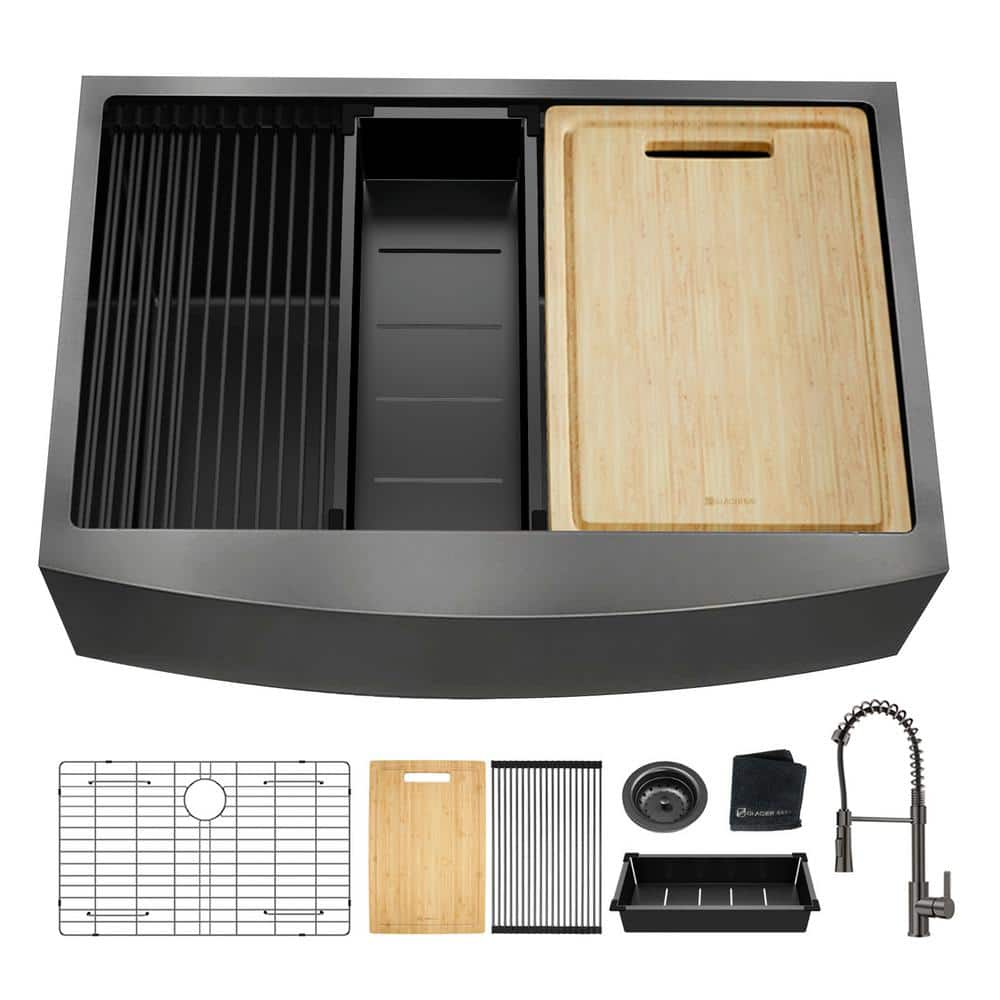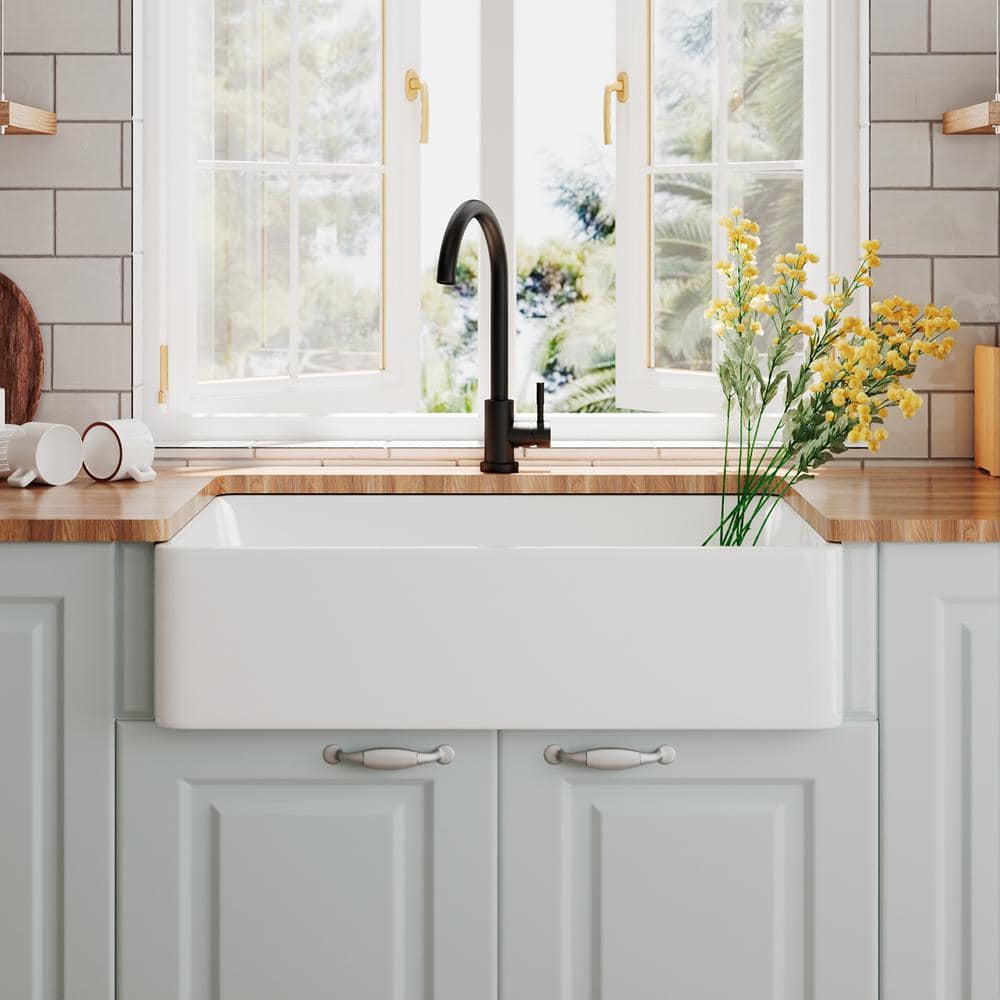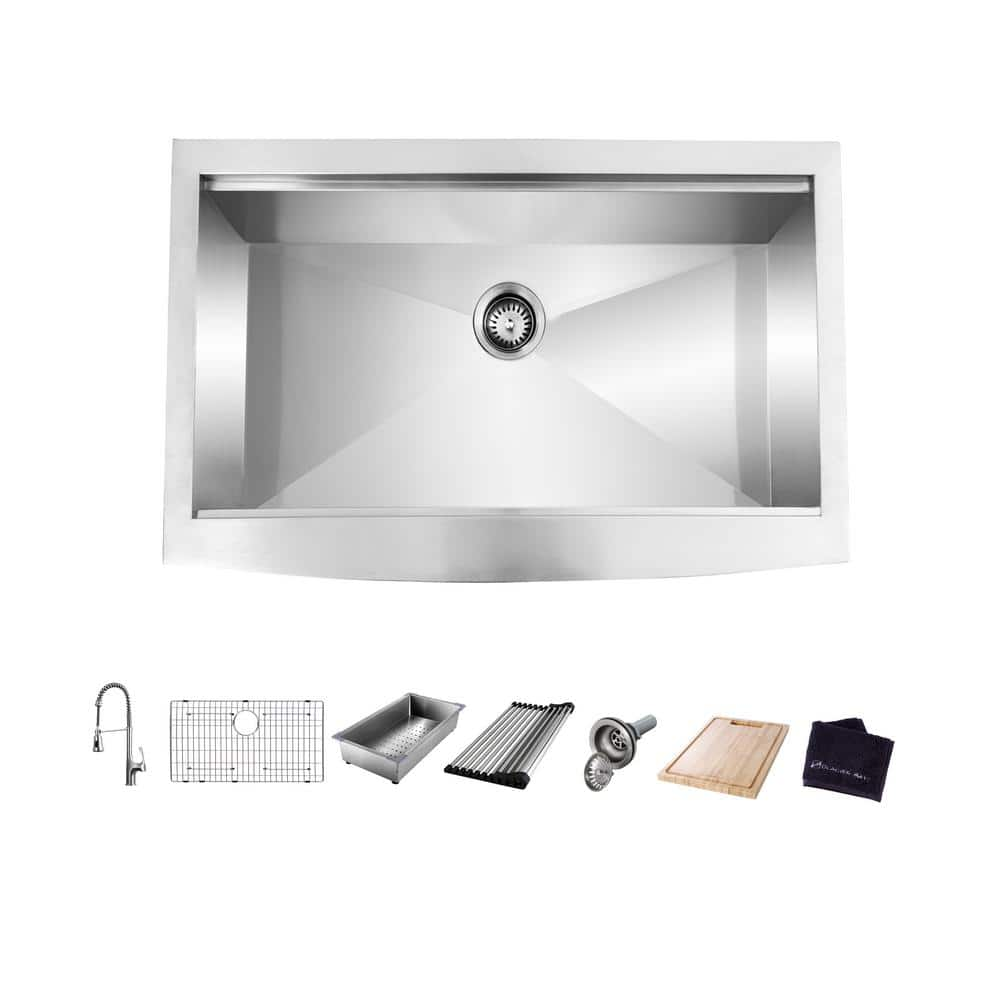SINKOLOGY Bradstreet II Farmhouse Apron Front Fireclay 30 in. Single Bowl Kitchen Sink in Crisp White
Crisp white color for a timeless classic style. Genuine solid fireclay construction. Works with most garbage disposals.
The Bradstreet II fireclay kitchen sink brings SINKOLOGYs INSPIRED collection of fireclay sinks to your home. Our handcrafted single bowl sink showcases the classic beauty of the farmhouse style with modern enhancements for ultimate functionality. The 30 in. sink is a beautiful focus point for your kitchen and provides generous space for filling pots, stacking dishes, cleaning and preparing meals. The Bradstreet II is designed to withstand the needs of a busy kitchen without sacrificing the classic look of an authentic farmhouse sink. The single bowl, apron-front sink features a crisp white finish that brings clean, timeless beauty to your kitchen. All SINKOLOGY sinks are guaranteed to not chip, crack, stain or rust and we back that promise with our exclusive SINKOLOGY Lifetime Warranty. The Bradstreet II single bowl farmhouse sink from our INSPIRED collection is functional, reliable and priced with you in mind.
- Farmhouse sink Outer Dimensions: 30 in. x 18 in. x 10 in.
- Farmhouse design: The Bradstreet II offers the signature look of an authentic farmhouse sink with generous space for filling pots, stacking dishes, cleaning and preparing meals
- Easy cleaning: SINKOLOGY fireclay sinks are reinforced with our signature Glaze to lock in its beauty and create a surface that is non-porous and thick for easy, on-the-go cleaning
- Lifetime warranty: The Bradstreet II is guaranteed to not chip, crack, stain or rust and we back that promise with our exclusive SINKOLOGY lifetime warranty
- Installation: designed for easier farmhouse-style installation, with a level, flat bottom and 90 side walls
- Cabinet size: 33 in. recommended
- SINKOLOGY grids (accessory): protect your SINKOLOGY kitchen sink with our specialty grids, each grid is individually handmade heavy-gauge steel and vinyl coated for improved durability and long-lasting color, stainless model # SG008-27ST antique brown model # SG004-27
- Drains available as a basket strainer (Stainless #TB35-03) or InSinkErator (ISE)-compatible (Stainless # TD35-03) SINKOLOGY drains are a perfect fit for most kitchen sinks, especially SINKOLOGY fireclay farmhouse sinks
- Ideal for: The Bradstreet II is handcrafted to withstand the needs of a busy kitchen without sacrificing the elegance of a classic apron-style farmhouse sink
Additional information
| Actual Left to Right Length (In.) | 30 |
|---|---|
| Bowl Below Counter Depth (in.) | 10 |
| Bowl Front to Back Width (in.) | 16 |
| Bowl Left to Right Length (in.) | 28 |
| Bowl Top to Bottom Depth (in.) | 9 |
| Cut-Out Below Counter Depth (in.) | 11 |
| Cut-Out Depth (in.) | 16 |
| Cut-Out Width (in.) | 28 |
| Kitchen Sink Front to Back Width (In.) | 18 |
| Panel Height (in.) | 10 |
| Panel Width (in.) | 30 |
| Certifications and Listings | ICC-ES PMG Listed |
| Manufacturer Warranty | Lifetime Warranty – Everyday Promise |






by Susan
It’s beautiful, but has not been installed or used yet. Looks like the cutting board is thick and substantial.
by Angela
I have been wanting this sink for a long time. I absolutely love it and it goes well in our new remodel kitchen.
by Javier
Excellent quality. Looks like a million bucks but only cost a couple hundred. Would definitely recommend.
by Mags
Excellent quality at a fair price. Be sure to measure your cabinet base as this sink is extra deep.